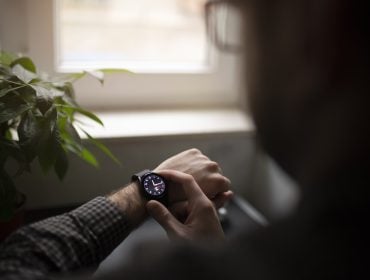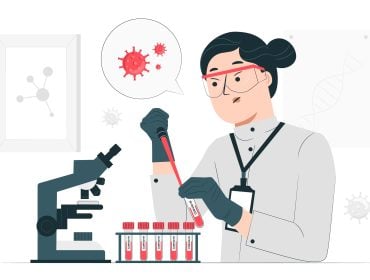Free STD Testing: Where To Get It?
We dug into the pros and cons of getting free STD testing, and now we are answering where you can go to get free STD and HIV testing.
There are many places you can visit for free or nearly free STD tests including most state health departments, local nonprofit health organizations, Planned Parenthood locations, and various college and university programs.
For the most part, free STD testing is funded federally through non-profit organizations or via programs provided by various institutions (colleges, universities, churches, etc.).
Federally Funded STD Testing
According to the Catalog of Federal Domestic Assistance, the Department of Health and Human Services offers control grants for preventative health services for sexually transmitted diseases via the Centers of Disease Control and Prevention (CDC). This funding may be applied for by an eligible “state or authorized subdivision including American Indian/Alaska Native tribal governments or tribal organizations located wholly or in part within their boundaries, academic institutions, and public health organizations.” In 2016 and 2017, the allotted assistance to cooperative agreements is estimated to be approximately $98,904,456 for each year.
These grants for STD testing and preventative care are given to places like state health organizations and clinics, which in turn are able to offer free or low-cost STD testing services.
Sexually transmitted infections and diseases cost the government a lot of money every year. In fact, a 2013 report from the National Institutes of Health found that the diagnosis and treatment of chlamydia alone in 2008 in the United States cost more than $516,000,000, and that gonorrhea cost more than $162,000,000 in the same year.
Planned Parenthood
Due to funding from the government, as well as other sources, Planned Parenthood is able to offer free or low-cost STD testing services to certain individuals, especially those whose income levels are below the poverty level. Individuals on Medicaid are typically eligible for free STD/STI testing at Planned Parenthood locations. Planned Parenthood also accepts numerous forms of insurance.
According to Planned Parenthood, they conduct STD tests in several ways:
- Physical Exams – During a physical exam at Planned Parenthood, a physician “may look at your genitals and/or your anus for any signs of an infection, such as a rash, discharge, sores, or warts. For women, this exam can be similar to a pelvic exam.”
- Blood Sample – You may have a blood sample drawn that will be tested for specific STDs.
- Urine Sample – A urine sample may be collected to test for specific STDs.
- Swab Sample – A sample of discharge, tissue, cell matter or fluid, or saliva may be collected to be tested for specific STDs.
Because Planned Parenthood locations are reproductive health centers, they test for a large variety of sexually transmitted infections. The common STD tests performed at Planned Parenthood include include HIV, chlamydia, gonorrhea, syphilis, herpes, hepatitis B and C, and other infections like pubic lice (crabs), trichomoniasis, HPV (testing for women) and Molluscum contagiosum.
Local Health Departments
Federal and state funding trickle down to local (city or county) health departments to allow them to offer free or low-cost testing for sexually transmitted infections. Sometimes local health departments have a fee associated with STD testing or discounted prices for certain STD tests, but often STD testing can be found for free (especially HIV tests).
Secure and Confidential
STD testing services
The fastest results possbile - available in 1 to 2 days
Some health departments only test for a few of the common STDs. Rather than being able to get tested for 8 or 10 different STDs, you may only be able to get tested for 3 or 4 STDs at a local health department. Occasionally, testing is provided based on an income slide scale, so you pay an amount for the testing that varies depending upon your income.
Local health departments’ testing options vary widely from location to location. Some departments may offer only blood and urine STD tests, some may offer rapid tests, some may offer swab testing. All local health departments that offer STD testing will offer HIV testing. Chlamydia, gonorrhea, syphilis and hepatitis C testing is typically standard as well. Herpes testing is sometimes offered, but may only be for cases of genital herpes.
Nonprofit Organizations
There are many nonprofit organizations that offer free STD or HIV testing. Numerous cities have local health clinics that are run by LGBT groups and programs, religious organizations, and other community programs that provide free testing services. Like health departments, these facilities’ testing services will vary from site to site, and so will their methods of STD testing. Nearly all nonprofit organizations that offer health testing offer HIV testing. Additionally, they may offer other STD tests, like hepatitis C or common bacterial infections like chlamydia and gonorrhea.
Nonprofit organizations receive funding from various resources, including federal grants, donations, fundraising, and other resources.
Colleges and Universities
Many higher education institutions offer students free or low-cost HIV and STD testing. College and university students are a crucial group in terms of STD testing as 50% of all STDs are contracted by individuals between the ages of 18 and 24. As such, many academic institutions provide testing services or have free or low-cost resources available to suggest to students.
Like health departments and nonprofit organizations, college and university programs and facilities’ testing services will vary from site to site, and so will their methods of STD testing. Types of testing most frequently offered cost-free through college and university testing programs include HIV, chlamydia, and gonorrhea. Other STD tests may be available, or you may be directed to a local health department for more comprehensive testing options.
STDcheck.com offers free HIV testing to college or university students via the STDcheck.com University Program— if you’re a student, see if your school is enrolled in the program. If not, ask your college or university to enroll, so that you and your fellow students can obtain free HIV testing.
These facilities or programs often offer more than just STD testing. Many of them also offer free or discounted condoms or other barrier forms of protection, like dental dams or female condoms. They may also provide birth control or well-woman exams. It is important to call and find out exactly which services are rendered and what kind of STD testing is available at a free STD clinic or center near you. You do not want to miss out on comprehensive testing and it may be a deciding factor on where you go if certain centers require physical exams rather than just giving a blood and/or urine sample.
To get a 10-test panel that checks for 10 common STDs via a blood sample and a urine test, go here.
STDcheck.com offers testing across the nation, but we are dedicated to serving individual community needs. We create specific pages for all of our major cities. View an example our Los Angeles testing page.
Medically Reviewed by Gill Sellick, MBChB on September 18, 2023
Secure and Confidential
STD testing services
The fastest results possbile - available in 1 to 2 days

Tagged
Categorized As
Author: Nick Corlis
Nick Corlis is a writer, marketer, and designer. He graduated from Texas State University in San Marcos, Texas, with a degree in Digital Communications. Nick is proud to be able to help eliminate the stigma of STD testing through his writing and is always trying to advocate the importance of your sexual health. Before STDcheck, his favorite way to develop his writing skills was by accepting various writing jobs in college and maintaining multiple blogs. Nick wears many hats here at STDcheck, but specifically enjoys writing accurate, well-researched content that is not only informative and relatable but sometimes also contains memes. When not writing, Nick likes to race cars and go-karts, eat Japanese food, and play games on his computer.



